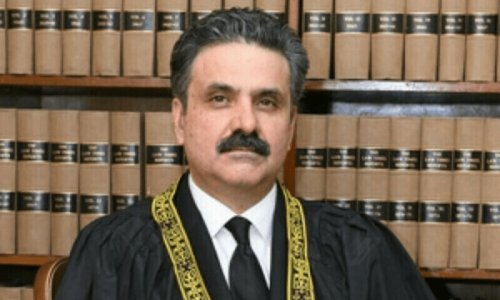THE US historian Niall Ferguson is a modern Cassandra. His utterances are prophecies waiting on the tip of time, begging to be believed. For example, his book The Ascent of Money: A Financial History of the World appeared in 2008 and foretold a crash in US financial markets. Soon afterwards, Lehman Brothers went bankrupt and Merrill Lynch crashed.
His latest book The Square and Tower: Networks, Hierarchies and the Struggle for Global Power (2018) contrasts the power of hierarchical (ie vertical) structures with the subsurface (radial) power of networks.
Ferguson’s inspiration came in the wake of his research into the life of Dr Henry Kissinger. No man in modern political history has perfected the art of networking as Dr Kissinger did, first as national security adviser and later secretary of state under presidents Richard Nixon and Gerald Ford. Kissinger had scant respect for hierarchies, unless he was at the top of it. He preferred the personal touch, an unimpeded accessibility to world leaders. He needed a voice to the name, which explains why the concept of a European Union unnerved him: “Who do I call if I want to speak to Europe?”
Ferguson illustrates his point through an Ego chart which shows world leaders according to the frequency of their contact with Kissinger. Interestingly, president Gen Yahya Khan is shown at a par with Soviet premier Alexei Kosygin.
Ferguson gives examples of less individualised networks — professional bodies, religious sects, secret societies like the Freemasons, etc. They succeeded because their survival was based on their success.
We are warned of the power available to IT giants.
He contrasts this with the hierarchies that depend for their success on obedience to their credo. The religion of the ancient Egyptians or the Mayans or today’s Roman Catholic Church are the most obvious examples. As are absolute monarchies and totalitarian states. In fact, any institution that has a top-down or bottom-up approach to decision-making.
To Ferguson, the most crucial event in our history was the invention of the printing press in the 15th century. Optimists then saw in its power of dissemination the Utopian dream of a global community. Knowledge would no longer be a private perquisite. It would be the great equaliser.
Five centuries later, the invention of network platforms spawned a similar expectation. Through Facebook, its founder Mark Zuckerberg was sure that Facebook would give “people the power to build a global community that works for all of us”.
Evan Williams (co-founder of Twitter) discovered otherwise: “I thought once everybody could speak freely and exchange information and ideas, the world is automatically going to be a better place. I was wrong about that.”
Ferguson agrees with Williams. He argues that access to information does not ipso facto lead to social equality. He has realised that while the population of social platform users has expanded across the globe, become diffused, ownership of those platforms is increasingly concentrated in a few hands. He cites the revenues Facebook and Google raise from advertising revenues. In 2019, Facebook earned $69 billion from such revenues, more than the total revenues of all traditional forms of advertising. Google earned $135bn. To Ferguson, personal data pumped out of us is as precious as crude oil pumped out of the sand.
As Cassandra, Ferguson warns us of the power available to these IT giants. He contends that 80 per cent of all the news appearing on Google and Facebook is recycled, not the outcome of investigative reporting. They operate in an intellectual stratosphere beyond oversight — legislative, moral or self-regulated. These companies claim they are not publishers, therefore not obedient to their laws, yet they do nothing if not purvey information.
How are they to be controlled? Ferguson has suggested an international super-body for surveillance. Citing the precedent of the Congress of Vienna of 1814-15 when Great Britain, Austria, Russia, Prussia, France allied to rule the world, and the Treaty of Versailles of 1919 where four countries — the US, Great Britain, France, and Italy — sought to straddle the post-war world, Ferguson thinks that the five permanent members of the UN Security Council should do the job. Except that China has built a Great Wall of technology around itself. It has the world’s most sophisticated payment system, and it works. It does not need to collaborate with inferiors.
A crucial test will be the 2020 US presidential election. In 2016, Hilary Clinton had the support of Silicon Valley moguls. Yet she relied upon traditional methods of campaigning, spent twice as much as Donald Trump, and lost. Trump targeted the small voter through social media, and won. This time he does not need Putin’s hand hidden in his glove.
Will modern networks, asks Ferguson, replace traditional hierarchies? Unlikely. The animal in man needs hierarchies. The serpent in him prefers the darkness of networks.
The writer is an author.
Published in Dawn, September 3rd, 2020











































